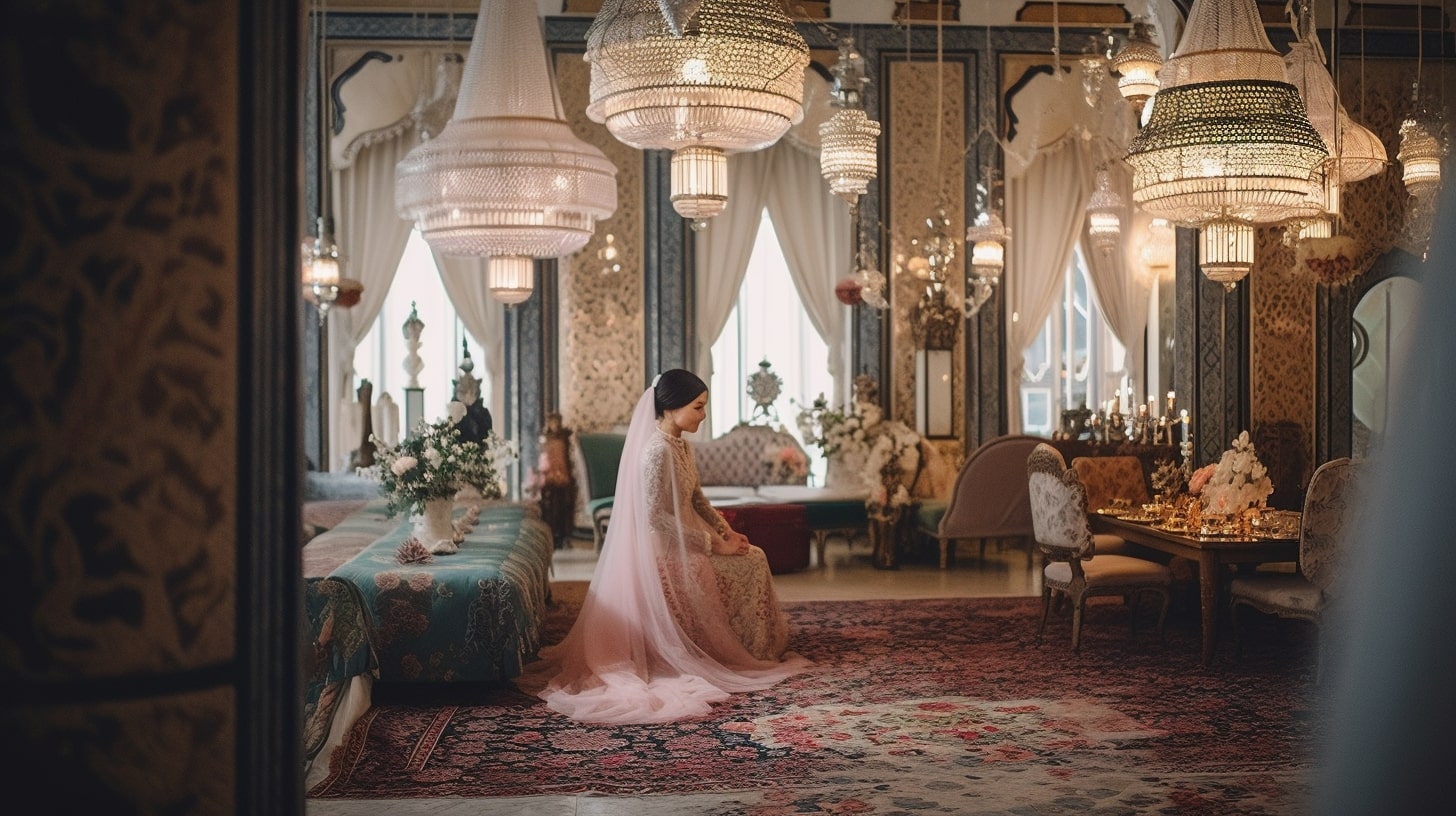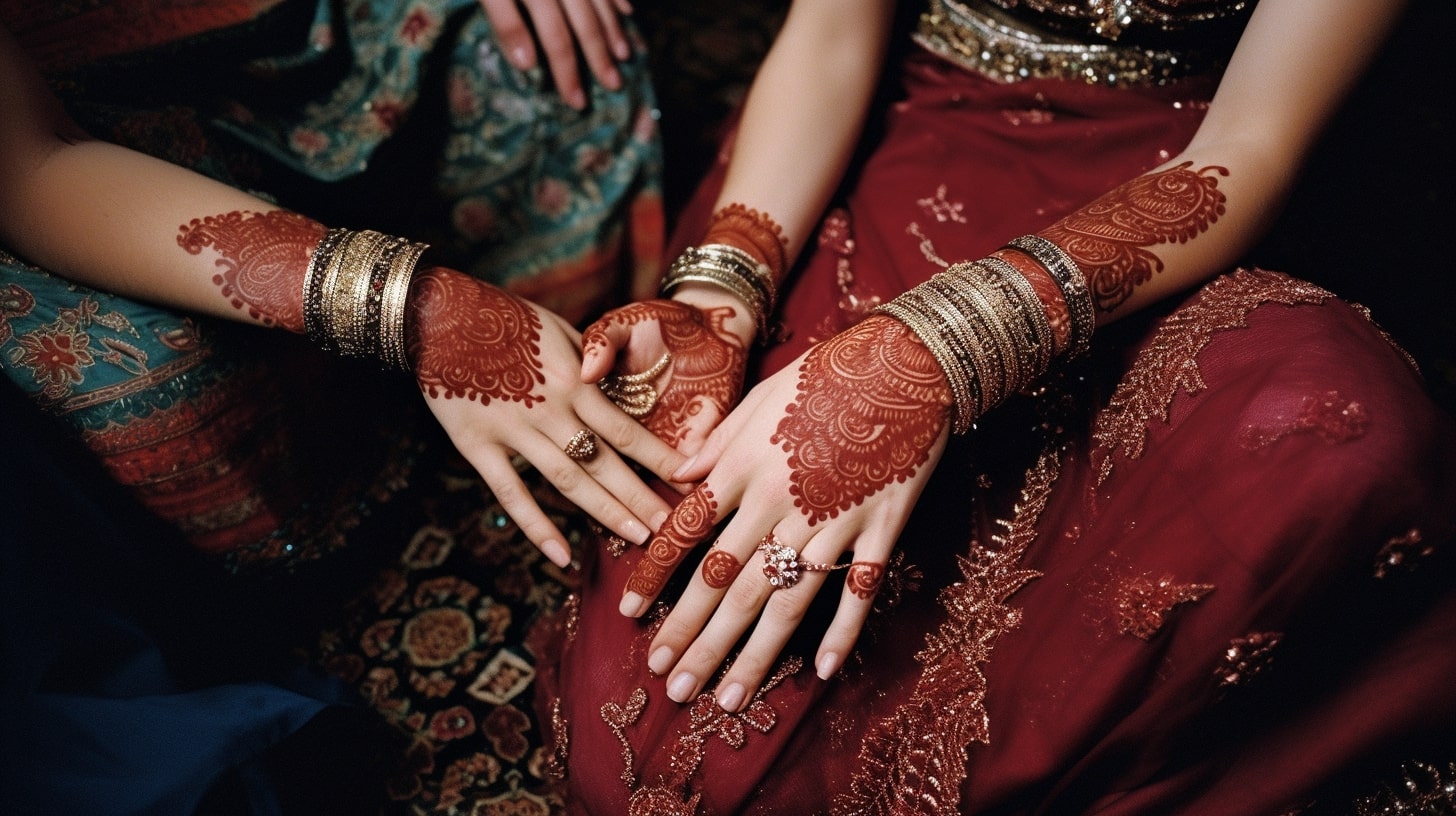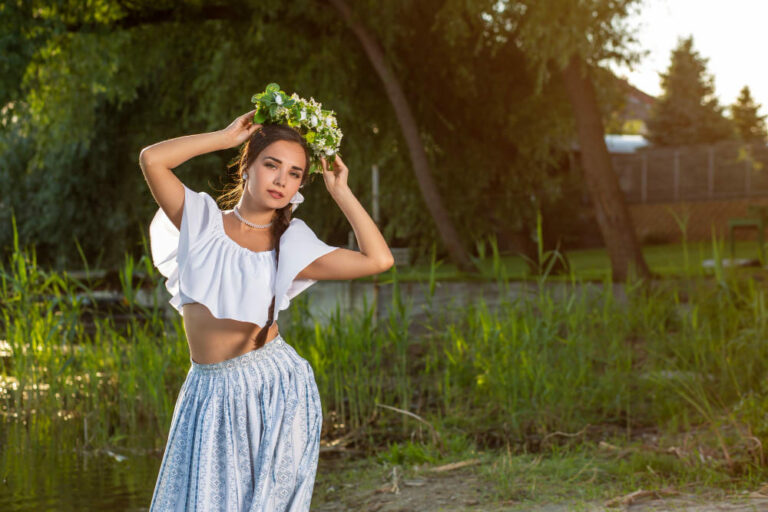Turkish Marriage Traditions: A Rich Tapestry of Culture and Love
Introduction:
Turkish marriage traditions are a beautiful blend of ancient customs and contemporary celebrations, reflecting the deep cultural roots of this fascinating country. With a history spanning centuries, these traditions have evolved into a tapestry of rituals and ceremonies that emphasize family, community, and love. In this article, we delve into the captivating realm of Turkish marriage traditions, exploring the intricacies and significance behind each practice.

Turkish Marriage Traditions: A Celebration of Love and Unity
Marriage is a sacred bond that holds a special place in Turkish culture. The union of two individuals goes beyond the couple themselves, extending to families and communities. Turkish marriage traditions encompass a wide array of practices, each contributing to the holistic celebration of love and unity.
The Engaging Process of Matchmaking
Turkish matchmaking, known as “Görücülük,” is a traditional process where families play an active role in finding suitable partners for their children. While modern romance has gained prominence, this custom still holds significance in many regions. Elders, known as “Görücü,” assist in identifying potential matches, considering compatibility, family background, and values.
The Vibrant Henna Night
Henna Night, or “Kına Gecesi,” is a lively pre-wedding celebration where the bride’s hands and feet are adorned with intricate henna designs. This joyful event is accompanied by music, dancing, and heartfelt well-wishes for the bride’s future happiness. The red color of henna symbolizes love and fertility, infusing the occasion with deep cultural meaning.
The Symbolic Bridal Bath
The traditional Turkish bridal bath, or “Hamam,” is a cleansing and purifying ritual that takes place before the wedding. The bride is bathed by her female relatives and friends, symbolizing the purification of past experiences and the preparation for a new life journey.
The Majestic Wedding Ceremony
Turkish wedding ceremonies are a grand affair, often taking place in stunning historical venues or modern event spaces. The couple, adorned in elegant attire, exchange vows and rings amidst a backdrop of rich cultural symbolism. The “Nikah,” or marriage contract, is signed, and the couple is officially declared married under Islamic law.
The Joyful Celebration of “Şeker Bayramı”
Following the wedding, a delightful tradition known as “Şeker Bayramı” or “Candy Festival” occurs. Friends and family visit the newlyweds, offering well wishes and sweet treats. This tradition signifies the couple’s new journey and their welcoming into the broader community.

Embracing Change While Preserving Tradition
In the ever-evolving landscape of Turkish marriage traditions, a delicate dance between tradition and modernity has emerged, showcasing the adaptability and resilience of this cultural tapestry. While the core values and customs remain steadfast, couples are finding innovative ways to infuse their weddings with contemporary elements, reflecting their unique identities while honoring the legacy of their ancestors.
- A Harmonious Blend of Old and New
Modern Turkish couples are seeking a harmonious blend of old and new, recognizing the significance of their cultural heritage while embracing the opportunities that modern life presents. This balance is evident in various aspects of wedding planning, from the choice of venues to the incorporation of technology into the celebrations.
- The Venue: Where History Meets Today
Turkish weddings are known for their grandeur, and modern couples are opting for venues that reflect their rich history. Magnificent Ottoman palaces, ancient courtyards, and historic mansions provide a stunning backdrop that pays homage to tradition. At the same time, contemporary event spaces equipped with state-of-the-art facilities offer the convenience and comfort expected in modern weddings.
- Attire: Fusion of Elegance and Trend
Bridal and groom attire seamlessly weaves together elegance and trend. Brides may choose to don the classic “bindalli,” a traditional Ottoman silk dress, for the ceremony, and then switch to a modern gown for the reception. Grooms, similarly, might opt for a combination of traditional “fes” (fez) and “cepken” (vest) with a modern suit.
- Technology’s Subtle Touch
While tradition takes center stage, technology lends a subtle touch to enhance the wedding experience. Couples are utilizing social media to share their journey, create custom hashtags for the event, and even live-stream parts of the celebration for loved ones who cannot attend in person.
- Culinary Delights: Fusion of Flavors
The wedding feast, an integral part of Turkish culture, now embraces a fusion of flavors. Traditional dishes like “kebabs,” “baklava,” and “lokum” (Turkish delight) are accompanied by innovative culinary creations, catering to a diverse range of palates.
- Music and Dance: Bridging Generations
Music and dance play a pivotal role in Turkish weddings, and modern couples are preserving this legacy while infusing it with contemporary beats. Live bands or DJs may blend traditional melodies with modern tunes, ensuring that both younger and older generations revel in the festivities.
- Personalized Touches: Crafting Meaningful Moments
Amidst the amalgamation of tradition and modernity, couples are adding personalized touches that hold deep meaning. Handwritten vows, custom-made wedding favors, and interactive guest activities contribute to an intimate and memorable experience.
- Sustainability and Conscious Choices
In tune with global trends, some couples are weaving sustainability into their celebrations. Eco-friendly practices, such as using locally sourced ingredients, minimizing waste, and supporting artisanal crafts, are gaining traction as couples seek to celebrate their love while minimizing their ecological footprint.
- Keeping the Flame Alive
As Turkish marriage traditions continue to evolve, the essence of familial bonds and cultural pride remains unwavering. Couples are not merely embracing change for change’s sake; they are ensuring that the flame of tradition burns brightly, illuminating the path for future generations to follow.
In this dynamic interplay between tradition and modernity, Turkish weddings are a testament to the enduring spirit of love and the timeless beauty of cultural heritage.

Turkish Marriage Customs
Turkish marriage customs are an intricate blend of age-old traditions and contemporary influences, reflecting the depth of cultural heritage that defines this captivating country. As couples embark on the journey of matrimony, they immerse themselves in a world of rituals and practices that honor both the past and the present, weaving a narrative of love, unity, and community.
- The Journey of Courtship
Turkish courtship is a time-honored process that often involves families playing an active role. While modern romance has found its place, the essence of courtship remains a cherished tradition. Families engage in the practice of “Görücülük,” where potential partners are introduced through intermediaries, ensuring compatibility in values, background, and aspirations.
- The Captivating Henna Night
Henna Night, known as “Kına Gecesi,” is a mesmerizing pre-wedding celebration that unites family and friends in joyful revelry. The bride’s hands and feet are adorned with intricate henna designs, symbolizing love, prosperity, and the transition into married life. Music, dancing, and laughter fill the air as attendees share their well wishes, making this event a true testament to the bond of friendship.
- Symbolism in Bridal Preparations
The Turkish bridal bath, or “Hamam,” is a ritual steeped in symbolism. Prior to the wedding, the bride is bathed by her female relatives, signifying the cleansing of the past and the emergence of a new, purified self. The ritual is a poignant reminder of the transformative nature of love and the readiness to embrace the next chapter of life.
- Majestic Wedding Festivities
Turkish weddings are grand affairs that showcase the cultural opulence of the country. The wedding ceremony, often referred to as “Nikah,” is conducted with utmost reverence. Couples exchange vows and rings, solemnizing their union under Islamic law. The presence of an “imam” (religious leader) adds a spiritual dimension to the occasion, underscoring the sanctity of marriage.
- “Şeker Bayramı”: Sweet Traditions
Following the wedding, a delightful tradition known as “Şeker Bayramı” ensues. Friends and family visit the newlyweds, bearing sweet treats and heartfelt congratulations. This tradition embodies the sense of community that lies at the heart of Turkish culture, as well as the warm welcome extended to the couple as they begin their shared journey.
- The Ever-Evolving Landscape
While Turkish marriage customs remain deeply rooted, they are not impervious to change. Modern couples are skillfully infusing their weddings with contemporary elements, shaping celebrations that reflect their individual personalities and preferences. From the choice of venues to the incorporation of technology, these adaptations highlight the fluid nature of tradition.
- Preserving Cultural Heritage
Amidst the evolution, the preservation of cultural heritage remains a guiding principle. The fusion of old and new is not a dilution but a celebration of the vibrant history that has shaped these customs. Couples honor their ancestors while embarking on a path that is uniquely their own.
- A Timeless Legacy
In the intricate tapestry of Turkish marriage customs, love and unity serve as the threads that bind generations together. From the tender courtship to the exuberant celebrations, every ritual is a brushstroke on a canvas that portrays the profound connection between culture, community, and the enduring power of love.
Frequently Asked Questions about Turkish Marriage Traditions
- What is the significance of the henna night in Turkish weddings?
- The henna night, or “Kına Gecesi,” is a joyful pre-wedding celebration where the bride’s hands and feet are adorned with henna designs. It symbolizes love, fertility, and the bride’s transition into married life.
- How does Turkish matchmaking work in modern times?
- While modern romance is prevalent, traditional matchmaking, known as “Görücülük,” still plays a role in some regions. Families and elders assist in identifying potential matches based on compatibility and values.
- What is the purpose of the bridal bath ritual?
- The Turkish bridal bath, or “Hamam,” is a symbolic cleansing ritual that purifies the bride before her wedding. It represents the shedding of past experiences and the preparation for a new chapter in life.
- What is the significance of the “Nikah” in Turkish weddings?
- The “Nikah” is the marriage contract signing during the wedding ceremony, where the couple is officially declared married under Islamic law. It holds deep cultural and religious importance.
- How do couples embrace both tradition and modernity in Turkish weddings?
- Couples often blend traditional elements with modern influences in their wedding celebrations. This allows them to honor their cultural heritage while also reflecting their personal preferences.
- What is the meaning behind the “Şeker Bayramı” tradition?
- “Şeker Bayramı,” or Candy Festival, is a post-wedding tradition where friends and family visit the newlyweds, offering well wishes and sweet treats. It symbolizes the couple’s integration into their community.
Conclusion
Turkish marriage traditions are a captivating reflection of the country’s rich history, cultural diversity, and unwavering commitment to love and unity. From the engaging process of matchmaking to the vibrant celebrations and symbolic rituals, every aspect of these traditions weaves a narrative of profound meaning and connection. As couples continue to embrace both tradition and change, Turkish weddings remain a testament to the enduring power of love and the beauty of cultural heritage.

Ben Lockwood is an esteemed editor at SafeDateOnline, bringing a wealth of experience and expertise to the team. With a keen eye for detail and a passion for promoting safe and enjoyable online dating experiences, Ben plays a crucial role in ensuring that the platform delivers high-quality content and valuable insights to its users. His dedication to providing accurate information and helpful guidance contributes significantly to the success of SafeDateOnline in fostering a secure and supportive online community. Through his diligent work, Ben helps empower individuals to navigate the world of online dating with confidence and peace of mind.







